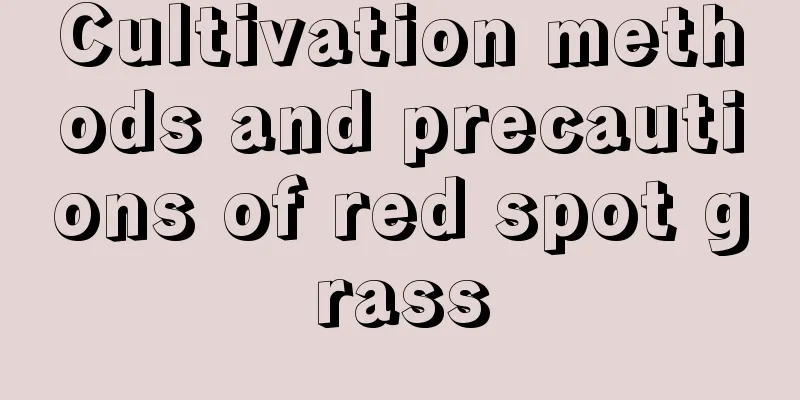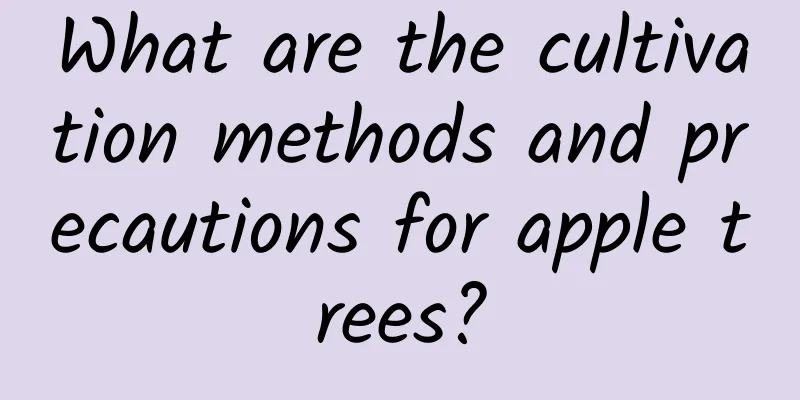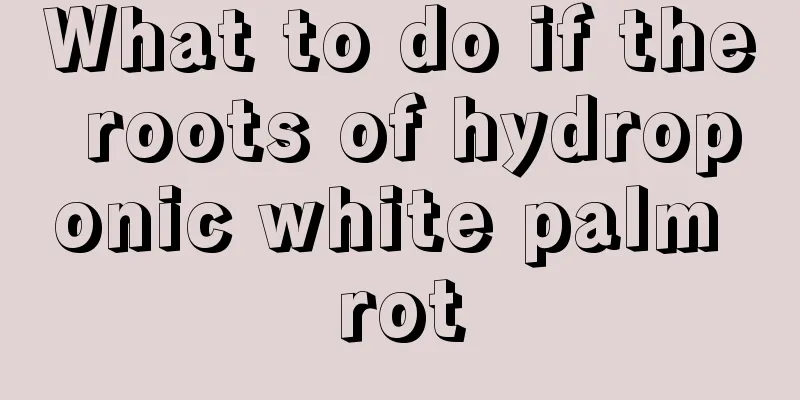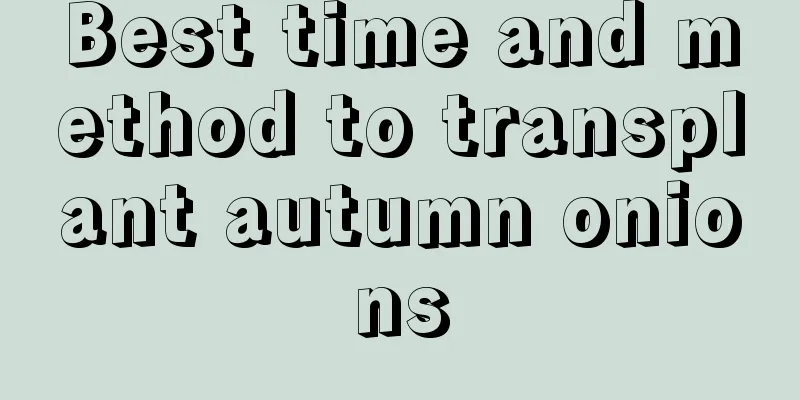Cultivation methods and precautions of red spot grass

How to cultivate red spot grassRed dot grass soilRed spot grass likes loose, breathable, well-drained, deep, fertile, humus-rich, slightly acidic soil. Temperature of red grassThe normal growth temperature of red spot grass is between 15-18℃, and the wintering temperature should be above 12℃. It is not resistant to severe cold, so you must keep warm in winter, place the red dot grass indoors, and ensure that the room temperature is above 12℃. When the temperature is too high in summer, pay attention to shading, cooling and ventilation. Moisture content of red grassRed spot grass likes a humid growing environment. During the normal growth period, pay attention to the moisture of the potting soil and water it frequently. When the temperature is too high in summer, you should increase the frequency of watering and spray water on the leaves to increase the humidity of the air. Lighting of Red Spot GrassRed spot grass likes warm and humid semi-shady environment and likes light, but requires partial shade or partial light. Appropriately increasing direct light can make the leaves more shiny. Fertilization of red grassRed spot grass does not require fertilizer very frequently, and only needs to apply nitrogen, phosphorus, potassium fertilizer or Taiwan Fertilizer Quick-Acting No. 1 once a month. Red spot grass is susceptible to stem rot during its growing season. You can mix pentachloronitr powder and dichlorodiphenyltrichloroethane powder and add water for irrigation, or you can use carbendazim and methyl tobacillus for prevention and control. Precautions for red spot grasspruneAfter the red dot grass blooms, the branches will die along with the flowers. The dead branches should be cut off to promote the growth of new branches at the roots. When the plant grows too fast, it is necessary to pinch the top of the plant in time to promote multiple branches and dwarf the plant, thereby improving its ornamental value. When the plant is too tall and the lower leaves fall off, it needs to be pruned again. Replacing potting soilWhen transplanting red dot grass, mix the original soil into the new pot. Half new and half old is best. This can prevent it from dying due to environmental discomfort. |
<<: What are the varieties of alum root?
>>: How to grow succulent plants Ruby
Recommend
What to do if the leaves of spiderwort wilt
The reason why the leaves of spiderwort wilt is l...
Cutting method and precautions of the lucky tree Cutting propagation method of the lucky tree
The lucky tree is also called the bean tree. It i...
Is it normal for Monstera leaves not to open up? How to make them open up?
1. Is it normal for leaves not to open? The Monst...
Orchid pot planting steps and precautions
1. Steps for planting orchids in pots Select seed...
How to take cuttings of keel flowers?
Growing keel flowers indoors can protect against ...
How to grow Silver Queen in spring
1. Increase lighting The metabolism of green plan...
The efficacy and function of hawthorn, what should not be eaten with hawthorn
1. The efficacy and function of hawthorn 1. Help ...
What are the aerial roots of the green radish? Can they be cut?
1. What are aerial roots? The aerial roots of gre...
How to divide asparagus fern and when is the best time to divide it into pots
1. How to divide asparagus fern 1. Preparation: W...
Artificial cultivation method of Morchella
As a rare and precious edible fungus , the number...
When is the right time to plant potatoes?
Potatoes , also known as potatoes, have different...
Causes and treatments for yellow leaves of umbrella flowers
1. The temperature is too low Reason: Umbrella fl...
Peach tree cutting time and method
Peach tree cutting time Peach tree cuttings can b...
When do ranunculus bloom?
1. Flowering period The flowering period of Ranun...
How to hydroponically cultivate hyacinth
Preparation Bulb selection Hyacinth bulbs are a m...









